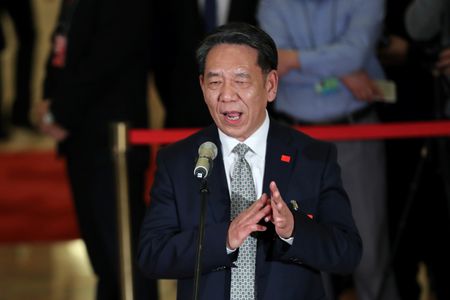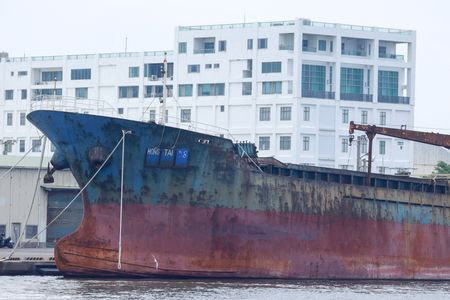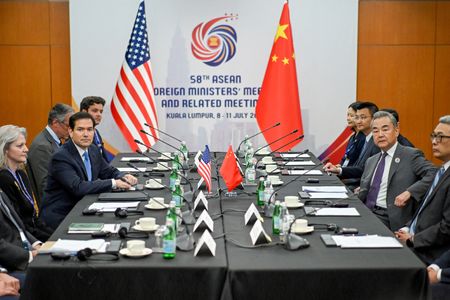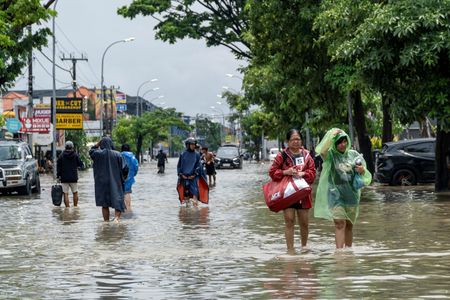By Eduardo Baptista
SHANGHAI (Reuters) – The chief designer of China’s lunar exploration programme accused the United States on Wednesday of interfering in Beijing’s attempts to cooperate with Europe and other foreign partners in space programmes.
Wu Weiren, in a rare interview with foreign media, told Reuters that China pursued a policy of open space diplomacy, in contrast with the U.S., and that it remained open to cooperating on lunar exploration with developing and developed countries.
Wu said the International Lunar Research Station (ILRS), an initiative led by Russia and China to establish a permanent base on the moon by 2035, was developing well, with 17 countries and international organisations already signed up as members.
But he suggested China had not been able to attract as many lunar project partners as the U.S. because of U.S. interference, though he didn’t provide details.
“The ILRS’ development trend is very good but compared to the U.S.’ Artemis Accords, ours is much smaller in terms of countries because the U.S. is always interfering in our cooperation with other countries, including with Europe,” Wu said, without elaborating on the interference.
The Artemis Accords are a U.S.-led multilateral agreement meant to establish norms of behaviour in space and on the moon and Mars, which has over 50 signatories so far.
“China and Russia cooperate the best with each other now,” Wu said, adding that China looked forward to further cooperation with Russia on moon-based nuclear energy.
Recent Chinese unmanned missions to the moon, to lay the groundwork to eventually build a manned lunar base, have carried foreign payloads from countries like Pakistan, Thailand, Italy and France, raising the profile of Beijing’s space diplomacy.
“ILRS is the sole mission in the world that provides equal opportunities for any country to be accepted and to participate actively by proposing payloads and satellites,” said Hernan Merino Choque, a deputy director at the Asia-Pacific Space Cooperation Organization, an ILRS member and a multilateral grouping whose biggest funder is Beijing.
China in February said it would train a Pakistani astronaut to join a future space flight next year to the country’s Tiangong space station. This will be the first time a foreign astronaut enters the station.
Following Russia’s invasion of Ukraine, the European Space Agency (ESA) ruled out joining the ILRS due to Russia’s involvement.
Meanwhile, U.S-China space diplomacy has been limited by the Wolf Amendment, a U.S. law passed in 2011 that banned NASA from collaboration with “China or any Chinese-owned company unless such activities are specifically authorised.”
While ESA sent a payload aboard China’s latest lunar probe, the Chang’e-6 mission, it has since said there were no plans for it to join the Chang’e-7 and 8 missions, slated for next year and 2028, respectively.
In 2023, the European agency said it would no longer consider sending European astronauts to the Tiangong space station.
(This story has been refiled to change the dateline)
(Reporting by Eduardo Baptista and Xiuhao Chen; Editing by Bernadette Baum)










